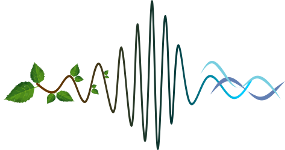Acoustic signals, such as bird song, are often used over long distances and/or in noisy areas, so that information in signals will be degraded or masked. Moreover, noise can indirectly affect communication by acting as general stressor or by shifting attention away from relevant signals. Yet, any such effects of noise depend on both, the nature of the noise and the characteristics of the individuals exposed to it. Here, I will outline some basic constraints of communicating in the wild by focusing on adaptations of signal structures and receiver behaviour to long range communication. I will also present some recent experiments in which we investigated the influence of noise differing in spectral characteristics on (a) male song and breeding success and (b) on parental nest box visits and nestling begging in field population personality-typed wild great tits (Parus major). The results indicate that effects of noise depend on the nature of noise as well as on characteristics of the exposed individuals, providing new insights in how disturbance can differently affect individuals in a population.
|
|
|
|
Tuesday
17
Noise I
› 14:15 - 14:30 (15min) › Grande Galerie Evolution Conference Hall
Effects of noise on communciation in breeding birds
1 : Behavioural Ecology Group, Animal Science Department, Wageningen University
(WUR)
-
Website De Elst 1 Building 122 6708 WD Wageningen The Netherlands -
Netherlands
|
| Online user: 2 | RSS Feed |

|

 PDF version
PDF version